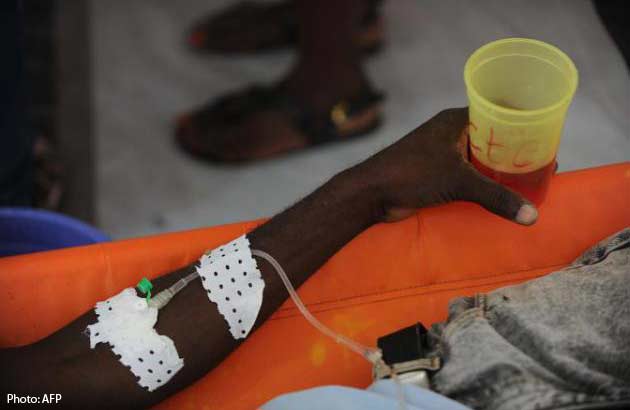SEOUL – The South Korean health authorities said on Tuesday (Aug 23) that the country has confirmed the first case of cholera in 15 years in Gwangju. It is the first time that a local citizen has been infected with the disease without having travelled overseas.
The Korea Centres for Disease Control and Prevention said that a 58-year-old man was infected with cholera in the southern city of Gwangju, after he started suffering from diarrhoea on Aug 10.
Eight days after he was hospitalised at a regional medical centre, he was reported to Gwangju’s public health centre as a suspected case of cholera.
On Monday, he was confirmed to have been infected with cholera. He has since been sent home upon recovery, after being quarantined and treated. While his wife, son and daughter do not show any symptoms, the health authorities said that it will conduct an additional investigation to check if they have also been infected.
The health authorities said that it is conducting an epidemiologic investigation into how the man caught cholera without travelling abroad since June last year.
Experts suggested the infection could have been caused by food, which was possibly carrying the cholera bacteria – Vibrio cholera – when it was imported overseas. The infected man reportedly told health authorities that he ate seafood during his trip to the southern coast earlier this month.
Since 2003, all reported cholera cases here were found to have been contracted from abroad.
South Korea saw the highest number of cholera cases in 2001, when there were 162 infected individuals concentrated in Gyeongsang Province. The record was followed by 145 infected people in 1980, 113 in 1991 and 68 in 1995.
Experts said it is not likely that the recent cholera case will develop into an epidemic.
“Since the main route of infection is through contaminated food or water, it is very rare (for it) to become an epidemic in developed countries with decent environment and social infrastructure,” said Professor Choi Jun Yong of the infectious diseases division at Severance Hospital.
During the 19th century, some 400,000 people – about 50 per cent of the entire population of Korea at the time – were killed by the disease, when it had a less developed groundwater pipe system compared with now.
Cholera infection can come from drinking contaminated food or groundwater, such as cholera-contaminated fish, shellfish or water. In rare cases, direct contact with an infected person’s excrement or vomit can also lead to infection.
Cholera normally has an incubation period of two to three days. Symptoms include diarrhoea, nausea, muscle cramps and dehydration, while severe cases can lead to deaths.
The health authorities encouraged citizens to take preventive measures such as consuming safe drinking water, avoiding raw food and washing their hands often for at least 30 seconds each time.
To monitor the outbreak of infectious diseases, the CDC has activated an emergency quarantine control system from May.





